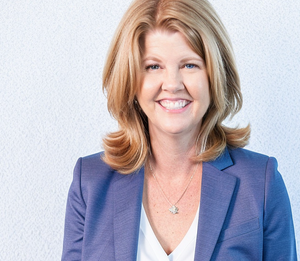Let's talk about meetings. Now love them or hate them, meetings are a part of business life and frequently they do not serve the purpose that you almost certainly intend them to. So I walk through the common problems that I see, and then I flip them on their heads and talk about the new tradecraft that I'd like to see put in place to sidestep those problems.
The Document:
Next Up:
I suggest watching this video next:

The Transcript:
Let's talk about meetings. Now love them or hate them. Meetings are a part of business life and frequently they do not serve the purpose that you almost certainly intend them to. They can be the bane of people's existence. People dread going to them. They find them to be time-wasters. You may even feel like they're time time-wasters and a lot of times they are.
And how I want to deal with this is by looking at the common problems that cause us to feel that our time spent in meetings are a complete waste of time because it really, really needs to be put off flipped on its head. And for us to realize that meetings are what power the business, what clear roadblocks and allow us to hang up and go back to work and do things faster, easier, more smoothly because of the time we spent in the meeting. So let me walk through the common problems that I see, and then let me flip them on their heads and talk about the new trade craft that I'd like to see put in place.
So common problems, probably the first one is focusing on the fire of the week or the fire of the day, letting those front burner issues dominate most or all of the meeting time that you have. And I'm sympathetic this to this because fires must be managed. If you have a fire, you're going to have to group with meet up with your folks and you need to work through those issues, but they cannot be the bread and butter of your meeting structure because you will never be able to spend adequate time moving the other projects ahead.
The, the quarter priorities that you've determined the front burner projects that maybe are important, but not urgent, but they are the ones that will increase the capacity in your business. They are the things that will allow your business to grow. And then ultimately to scale, those will often get short shrift. If you allow your meeting structure to be dominated by whatever the issue is.
And in fact, if you can rest yourself away from dealing with the fires in every meeting, you will actually be able to look ahead and identify the obstacles and hopefully avoid them so that you're going to have less and less fires to, to have to manage. So again, yes, you need to meet about fires, but you cannot have them dominate all of your meeting structure.
Another common problem is string off the stated meeting purpose. And this happens a lot when the same faces show up to the same meetings, you know, in small teams, it's not like you have a ton of different faces that are going to show up, depending on what meeting is called. A lot of times it's going to be similar phases. And so leadership meetings become,
you know, impromptu marketing meetings and the non marketers who happen to be in that meeting just kind of go off and multitask because somebody is going down a rabbit hole that doesn't apply to them. And so you get folks who drift off and then you get other folks who maybe even have only like half of the people who are necessary there, but you fell to talking about that one topic.
And then now it's kind of half, half being managed and half not because, you know, because the proper people weren't there and they probably weren't even Prepared to have that discussion. So when you stray off the state of meeting purpose, all sorts of problems can creep up. Another thing I see is focusing way too much on updates. You know, here's what I did last week.
And it's, it's not even particularly focused on mines, milestones or critical path elements. It's more just sort of justifying my existence and justifying my paycheck. Here's all the work that I did. And instead of looking forward, identifying critical issues, that might be us speed bumps and working to solve them. So there's just a lot of detail updates versus managing the business.
And speaking of management, I see very little to no meeting management in many of the meetings that I'm on. So that means there's no set agenda. Nobody really knows what the topics are until they show up. So how can they prepare? Nobody is particularly empowered to kind of call the time out to see if the time is being used wisely, you know,
very rarely do I see it. And I'm actually the one typically who would do this, who would say, okay, process check timeout. We have 20 more minutes. Do we want to continue on this topic? Or do we want to get to the other three things so that we can get decisions on them before we all hang up? So the meetings tend to be over when time runs out,
meetings are 59 and a half minutes, whether they needed to be, or not shorter or longer, it just sort of y'all talk until, you know, the top of the hour hits and everyone gets on the next team calls. So those meetings aren't fun and then they're not productive. And then of course, many, many times people are under-prepared and that's because they simply don't know what's off.
They don't know what to prepare. So numbers aren't being pulled ahead of time. Somebody is asking a question about what were last month's numbers and the numbers weren't pulled. They weren't attached. Nobody knew you were going to ask that question. If you asked for an update, you'll get a long winded response because they haven't fully prepped to answer that question. And then sort of it's people can't even ready their brains to have a good discussion around some of the meeting elements or the meeting agenda items,
because they're, when they're surprised by it, you kind of get top of mind. But if perhaps you had seated that agenda item a little bit earlier in the week, people could have given it some thought they could have come with some more fully expressed ideas. And, you know, you could have had a more richer discussion if you had prepped people ahead of time.
So those are the common problems I see. Let's flip them on their head. So the first one is to prepare. I doubt that you roll into too many client meetings under prepared. You're usually pretty buttoned up. You have your talking points, whether they're on a, on a paper that both of you can see or not, you know what you need to get through with,
during that call, you likely have links to different documents that you might pull up. You have numbers at your fingertips. You know, I'm not trying to create like, like an atmosphere where we're uptight about it, but let's create the expectation and the culture on the team to be prepared for meetings versus rolling in. So get your stats pulled ahead of time.
Figure out what you want to say about your project update ahead of time. I have a video on that and make sure that you're rolling in fully ready to discuss the agenda items. And that's the culture and the expectation that everybody on your team has no matter what the meeting. So the second piece is managing the meeting itself, create the culture where meetings are actively managed.
That means staying on topic, dropping down discussion items, I'm going to get into the specifics of what that means and what, what the agenda is, what a good agenda template is. But basically it's adhering to the agenda, following the agenda, paying attention to time constraints, whether you're running the meeting or whether you're a participant, I advocate doing this developmental process check about every five minutes.
Are you on track? Is the discussion germane to what you want to discuss? Are you driving to a point or are you all kind of meandering and allow people to raise their hand and say, Hey, process, check time out, and then be able to say whatever their, whatever they're observing that allows everybody to have a better meeting. And for those of us who don't tend to do that kind of mental checks there likely are people on your team for whom that comes very naturally.
And if you're empowering them to, to raise their hand and go break, break, I just want to do a time check. Are we on the right topic point? Is there enough time to get through the rest of the stuff we need to get through and, and address that, and then roll back into your discussion that will change meetings for the better.
So, and then to navigate, well, some meetings are about forests. Some are about the trees and the trick is to stay at the appropriate altitude. So, and then this is also empowering the meeting manager to continue to refocus the meeting on the actual objective objective. So in particular, I see forest meetings, devolving into trees meetings all the time.
So for instance, if you're meeting to set next quarters priorities, your big Q3 or Q4 priorities, or even your annual priorities, a lot of times those discussions will devolve into some software glitch, or should we move from this piece to that piece of software? What about, you know, Harold's PTO or, you know, like you get down into the weeds and you spend a lot of time there.
And what you really need to be doing is to recognize that had happened to zoom back up to the correct, you know, 10, 10,000 foot level or 20,000 foot level, and continue to talk about big priorities so that you can set them. So a lot of times that alone can, can make or break a meeting and focus is the last one.
The purpose of any meeting is to clear roadblocks and clarify priorities. So that work in continue. Once you hang up, every single meeting has that purpose. People should be better equipped to do their job for the rest of the week for the rest of the day, Because attended that meeting, they either got there, they either surfaced their issues or they got feedback that they were totally on track.
They participated in troubleshooting somebody else's issues, or they were just put on FYI that something else is going on in the business, but they're better informed. And now they're hanging up and they're doing their work better because they were on that meeting. So that's kind of the north star. If your meetings, any meeting isn't doing that, you need to get that meeting back on track,
or you should quit the meeting and possibly, you know, quit the, quit, the actual cadence of that meeting because it's not adding to your week. So I'm going to be digging into exactly how to get this stuff done and what a proper agenda might look like for the different meetings that you're going to have. How often should you have your meetings?
All of those things in subsequent videos.
Next Up:
I suggest watching this video next:









Member discussion